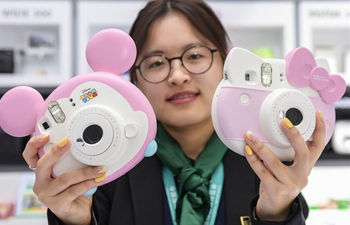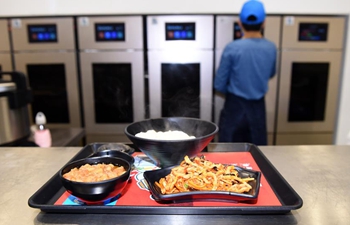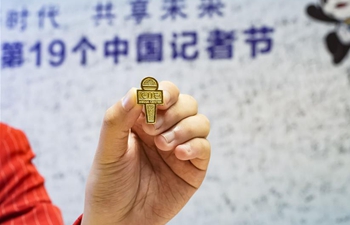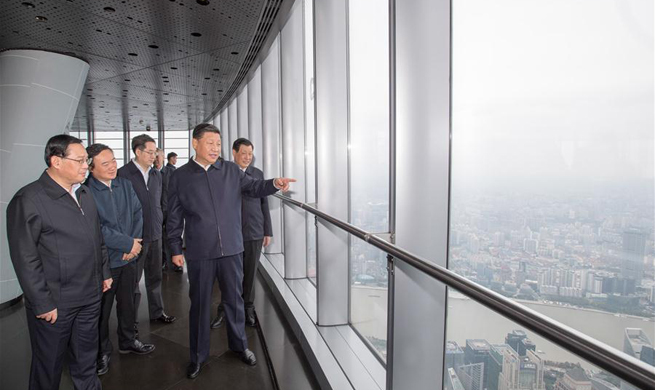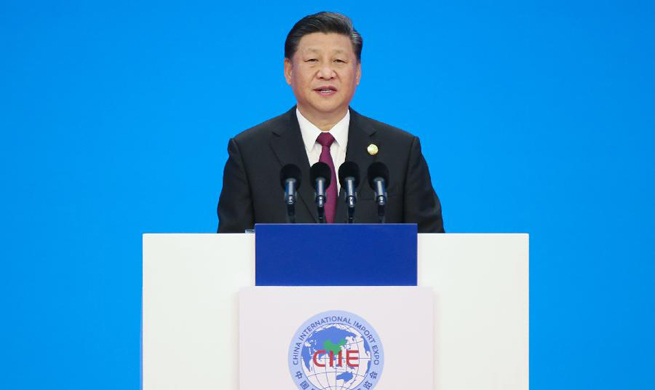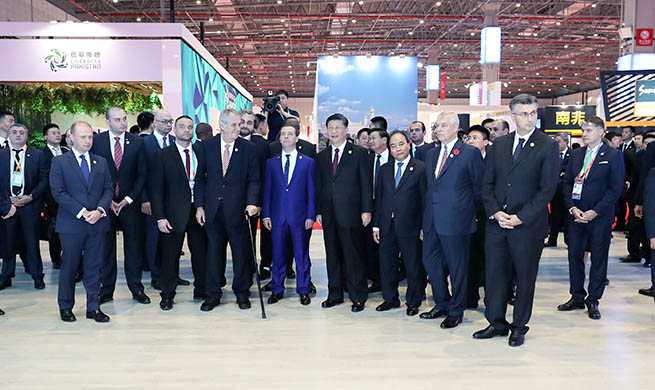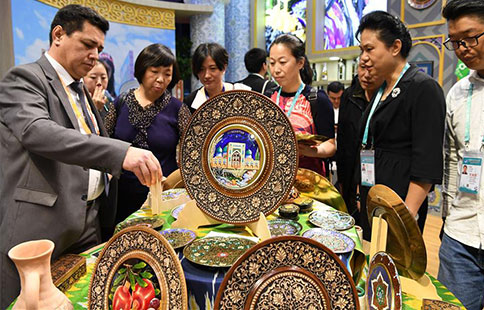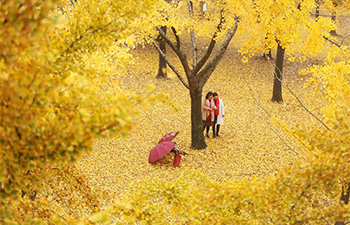SHANGHAI, Nov. 8 (Xinhua) -- Before the start of each business day, Kosuke Nakaoka hangs a sign around his neck that reads: "I am very sorry but I can only speak English or Japanese."
The brainchild of the Tokyo-based fish dealer was born out of his desire to save time communicating when dealing with hundreds of buyers visiting his booth at the ongoing China International Import Expo (CIIE) in Shanghai.
Translators can always be called in, but since the assortment of fish Nakaoka has put on display does the talking, the language barrier was never a big issue.
"There are many kinds of Japanese fish here. I like them a lot. I really want to do business with you," said a Chinese buyer from Jiangsu province, before adding Nakaoka to his WeChat friends list.
Nakaoka's family has run a fish company named Izuriki for more than 80 years. After learning about the expo, which he said was "a big news and a huge thing," he decided to come to China.
"This is the first time I am doing business in China," Kosuke said in English, who studied and worked in the U.S. for seven years. "Of course, I want to gain some business, but I also want to see the real Chinese market with my own eyes."
Scheduled to run through Saturday, the CIIE is the world's first import-themed national-level expo, bringing together more than 3,600 exhibitors and over 400,000 buyers.
For days, under the same roof of an exhibition space as large as about 40 football pitches, sellers and buyers from all walks of life are negotiating trade deals in the universal language of business, following the principle of fairness and good faith.
Besides multinationals that have been doing business in China for years, there are also a number of small firms that have yet set their footprint in the country. They see the expo as a great opportunity to tap into the vast market with 1.3 billion consumers.
Ghasem Amani, president of Iranian company Robimax, has set up a booth exhibiting exquisitely-made Persian tapestries. He is one of the foreign sellers who needs no help from translators.
"It's handmade and unique. Its price will only go up in the future," he said in fluent Mandarin, his template reply to any bargaining attempt.
In the well-lit booth, the tapestries shine, boasting the elaborately threaded colors in the designs, and they are selling fast. Three days into the expo, Amani's assistant has used up nearly half of the account book.
"I have a huge house in Tehran. I often receive large numbers of Chinese guests at my home," said the Iranian businessman, who learned Mandarin long ago after befriending a Chinese student studying in Iran.
On the official directory of the expo, he listed "promoting cultural exchange between China and Iran" as a vision of his company.
As Amani showed off pictures of his mansion-like home on his phone to wowing visitors, his assistant clicked the receive button on her phone and closed another deal.




